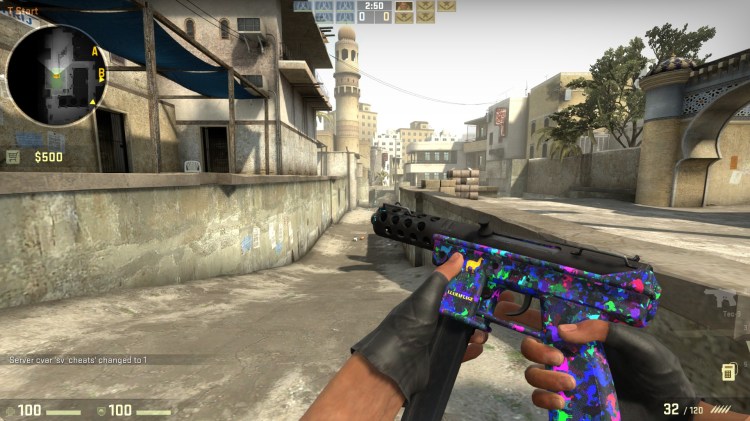Just a few years ago, no one would have ever thought to associate gambling with esports, yet it’s fast becoming commonplace to make a bet on matches and major tournaments.
The growing market for esports gambling is in fact a contentious issue, which you’ll notice in the discrepancies in revenues reported by gaming market researchers, SuperData and Newzoo. While SuperData includes betting in its 2016 revenues, which tallies to an overall tune of $892.8 million, rival Newzoo excludes it altogether, dropping that figure to nearly half the sum at $493 million.
Newzoo CEO Peter Warman explains the rationale behind the decision in an earlier report: “…We believe betting on esports should not be mixed into direct esports revenues as the money does not flow into the esports economy. Similarly, sports betting is not reported in sports market reports.”
You don’t have to search for long to find a bookmaker that already offers betting on esports matches and tournaments. Largely unregulated, it’s been a common occurrence lately to hear of reports of match-fixing scandals or black markets like skin trading in Counter-Strike: Global Offensive, valued at $5 billion in 2016. Forty percent of that went to betting on the outcomes of esports matches and tournaments.
June 5th: The AI Audit in NYC
Join us next week in NYC to engage with top executive leaders, delving into strategies for auditing AI models to ensure fairness, optimal performance, and ethical compliance across diverse organizations. Secure your attendance for this exclusive invite-only event.
Regulators are now wrestling to put into play the necessary legislation to legitimize and regulate the gambling activities that are increasingly taking place in social gaming. Earlier this month the Massachusetts Special Commission on Online Gaming, Fantasy Sports Gaming, and Daily Fantasy Sports put it on the table.
“So there’s the legit people playing as a competitor, they’re playing in a contest and playing for money, and then there’s people who are betting on those people … then there’s a whole gray and black market of people betting on people playing video games for money,” Justin Stempeck, the Massachusetts Gaming Commission state attorney, said in the eSports Betting Report.
The state’s law that currently regulates daily fantasy sports is set to expire this summer, at which time esports might very well get bundled in for the next round. Regulators are also apparently well aware of how special the situation is, given that the entire esports landscape is powered by the kind of technology that is rapidly and perpetually shifting the sands.
“The trick [to regulating esports] will be to come up with a framework that is appropriate and nimble enough to deal with innovation and technology that changes on the fly.” Eileen Donaghue, Commission member and Massachusetts state senator, said shortly after the meeting.
Last August, the U.K. Gambling Commission released a paper that addressed the need to clarify whether the risks associated to betting with virtual currencies like in-game items or bitcoin is equivalent to gambling and, if so, whether gambling licenses need to be brought into play.
“Like any other market, we expect operators offering markets on esports to manage the risks — including the significant risk that children and young people may try to bet on such events given the growing popularity of esports with those who are too young to gamble.” Neil McArthur, Gambling Commission general counsel, reported in the press release.
Enter the rise of loyalty point platforms in esports, or more commonly being referred to as virtual currencies.
These nonmonetized points systems are being positioned as central to engaging spectators, with startups like Revlo offering it as a third-party platform to broadcasters, or even more recently built-in as integral to the broadcasting platforms themselves like Twitch’s newly minted Steam+.
Spectators can earn these virtual coins by watching a live stream of a match or participating in a contest. They can then redeem or spend them on activities like requesting their favorite song to be played by the broadcaster, or betting on what a broadcaster might do next.
The virtual currency that Steam+ and other providers are putting into play are just for fun at the moment and are leveraged as an effective approach to inspiring fan engagement and loyalty, in a way that’s easy for spectators to understand. So it won’t be able to be misused and get into the kind of issues Valve has recently faced with the whole skin trading controversy because it doesn’t open itself to being traded or monetized by third-party sites or platforms.
But it isn’t hard to fathom that any virtual currency that promotes betting ‘for fun’ also caters and facilitates, at least in part, to the same psychological dynamic at play in real betting. And calling it a currency instead of a loyalty point platform is likely a hint to what’s to come if and when a viable road for monetization opens up.
Amir-Esmaeil Bozorgzadeh is the co-founder at Virtuleap, a sandbox for creative developers to showcase their VR concepts to the world, which is currently running the world’s biggest WebVR Hackathon. He is also the European Partner at Edoramedia, a games publisher and digital agency with its headquarters in Dubai.


